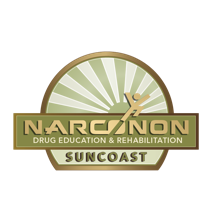Mexico Ravaged by U.S. Hunger for Heroin

Yes, we have an enormous problem with opiates in the United States, most namely heroin and fentanyl. This problem has been going on for so long it would be almost strange to imagine our world without it. Every day you hear news stories about overdoses here, overdoses there, fentanyl this and fentanyl that. There is, however, a part of this epidemic which seems to go ignored by most people. We see the wreckage opiates are causing our country; we see rehabs swelling beyond their capacity, methadone clinics have more patients than they can handle and money-hungry doctors are taking weekend courses to get a special DEA number so they can prescribe Suboxone.
What we’ve turned a blind eye to in this country is the fact that heroin and other drugs originate elsewhere in the world. There are many countries responsible for not only manufacturing drugs but also getting them smuggled into the United States, transported into nearly every town and sold to our kids killing them in record numbers. Because we have such a big problem here, it’s not incomprehensible that we appear uncaring about what happens to the people and communities in the countries responsible for creating the drugs, but it’s something that we really need to start paying attention to.
Mexico is one of the leading heroin manufacturing countries. Most people assume Afghanistan, Pakistan and China are the leading heroin producers, but Mexico is right up there with the “big dogs.” Highway 51, known as the “heroin highway” of Mexico, is littered with small, ravaged, desert towns whose residents are regularly victimized by extortion, kidnapping and robbery by local drug lords and cartels. Drug kingpins now rule this sun-scorched, lawless area of Mexico as the United States continues its undying desire for heroin. Mexico now produces 90% of the U.S. heroin supply and poppy production has increased a staggering 800% over the last ten years. Guerrero, the most violent state in Mexico, is the epicenter of the country’s opium trade. Ricardo Mejia Berdeja, the head of the security committee in the Guerrero state Congress said, “these groups have transformed themselves into a super-criminal power. The anchor for organized crime is heroin poppy.”
The Beltrán Leyva organization used to be the only cartel controlling this area and terrorizing locals, but now more than a dozen cartels and gangs have set up shop in the area, each in competition with murder and bloodshed an almost daily occurrence. Mexican cartels have seen heroin as a much better way to make money over cocaine and marijuana because the drug is costlier and easier to transport into the United States. Cartels have kidnapped wedding guests and participants, snatched school teachers out of classrooms and stolen local children for ransom. Police don’t even exist in the area because they fear the cartel too much. This is indeed, the wild wild west.
A neighboring country of ours is being virtually destroyed in the name of getting us high. The addict who needs his or her daily fix is funding this terrorism. The street dealers, who may just be selling drugs to support their family are, in fact, supporting the destruction of Mexico and its citizens. Maybe it’s not nuclear bombs and chemical warfare that will end the world. What if we destroy ourselves while looking for the next high? What if it’s actually drugs that wind up wiping our species from the planet.
What if?
